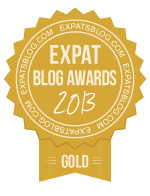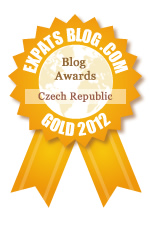 Northern Ireland sits on 1/6th of the island of Ireland. It's about the size of Belgium; a littler smaller than Connecticut and a little bigger than Maryland. Northern Ireland is one of the four countries which makes up the United Kingdom of Great Britain and Northern Ireland. It is home to just over 1.8 million people. Belfast is both the capital and the largest city.
Northern Ireland sits on 1/6th of the island of Ireland. It's about the size of Belgium; a littler smaller than Connecticut and a little bigger than Maryland. Northern Ireland is one of the four countries which makes up the United Kingdom of Great Britain and Northern Ireland. It is home to just over 1.8 million people. Belfast is both the capital and the largest city. Northern Ireland was established in 1921 when Ireland was split between the 26 counties which would eventually become the Republic of Ireland, and the six (out of nine) Ulster counties which wanted to remain with the UK.
Northern Ireland was established in 1921 when Ireland was split between the 26 counties which would eventually become the Republic of Ireland, and the six (out of nine) Ulster counties which wanted to remain with the UK.In Northern Ireland there are two primary groups - Protestants and Catholics. Then there are unionists and republicans. Unionists identify themselves as being British and want to maintain the union with the UK. Republicans want to end the union with the UK and see a united Ireland. Most Protestants are unionists and most Catholics are republicans. Then there are the loyalists and nationalists. Loyalists are hardcore, extreme unionists and nationalists are hardcore, extreme republicans.
 There was a Protestant majority in Ulster when Northern Ireland was established. There were some very shady laws and the Catholic minority there were discriminated against in employment, housing, voting rights, etc.
There was a Protestant majority in Ulster when Northern Ireland was established. There were some very shady laws and the Catholic minority there were discriminated against in employment, housing, voting rights, etc. In the late 1960s, conflicts broke out between the two communities which led to a period of violence, known as "The Troubles" which lasted for three decades. During this time more than 3,500 people were killed and over 50,000 injured.
In the late 1960s, conflicts broke out between the two communities which led to a period of violence, known as "The Troubles" which lasted for three decades. During this time more than 3,500 people were killed and over 50,000 injured.The Good Friday Agreement in 1998 paved the way to peace. There is still a good deal of segregation between Protestants and Catholics. Here's a video I found on YouTube which shows how some things have changed.
©PBS Newshour
.jpg) |
| Northern Ireland £5 and £10 banknotes |
 |
| Ulster Banner |
The British Union Jack is the official flag in Northern Ireland. The Ulster Banner was the flag of Northern Ireland until 1972 and since that time is has no official status. However, it is used heavily by unionists and loyalists. It is used as the "official" flag for Northern Ireland during football matches and other sporting events.
Here's a CNN report on rioting which took place over the British flag.
©VICE News
Today, there is almost an even split between the number of Protestants and the number of Catholics in the country. There is a lower birth rate among Protestants, and Catholics will eventually be the majority. I would not be surprised to see a united Ireland within the next 20 to 30 years.


























No comments:
Post a Comment